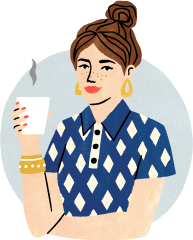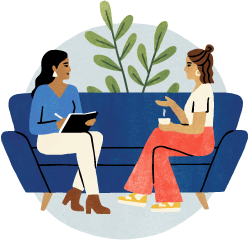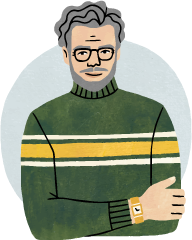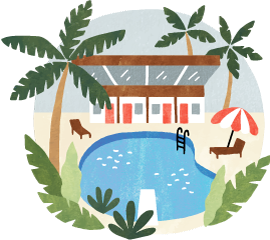Support Groups in Rapid City, SD
Thinking you're the only one? When we've been hurt in relationships, we can heal together. Discover you are not alone in your pain. Group therapy is a powerful way to gain progress much faster than individual therapy can achieve alone. This weekly therapy group will help you uncover and heal the wounds that are affecting your ability to feel comfortable in your life and to have healthy, fulfilling relationships of all kinds - with your partner, with your children, with your parents, with your coworkers, with your friends. Contact me for more information.

Hosted by Sarah Swantner
Licensed Professional Counselor, LPC-MH, CFT, CFP
Verified Verified
Group meets in Rapid City, SD 57701
This anxiety is relentless. It’s been going on for so long that you can’t remember what life is like without it. You have two modes – anxious and extremely anxious. It blows you away to hear people say you have it together, because you know you don’t. Somehow, you’re pulling off life and looking successful, but on the inside you’re a wreck. The thoughts about all the ways you’re not good enough never let up. The anxiety and critical voices are what keep you from failing, right? They won’t allow you to slack off, to relax, to stop worrying. It’s beginning to take a toll on your relationships, your physical health, and on your life.
This group explores all traumas and abuse including, physical, emotional, sexual, spiritual, ritual, abandonment, codependency, relationship, communication, and disability. The group will explore with many different types of therapy such as intuitive experiential therapy, art therapy, play therapy, sand tray, psychodrama and other techniques that will help you connect with your core emotional self that helps create positive change and less stress in your life.

Hosted by Dave Jetson
Counselor, LCP-MH, LCPC
Verified Verified
Group meets in Rapid City, SD 57701
Your internal dissatisfaction, emptiness, anxiety, depression and loneliness are the main motivators for counseling. It could be associated with relationships, work, grief, addictions, trauma, abuse or not being heard. These patterns develop when you deny your emotional truth. When you connect with your emotional truth, you are always loving, kind and respectful to yourself, others, to things of importance and God. When you connect with your emotional truth, life becomes more enjoyable. Reasons for living, loving and exploring seem possible again. The journey and many new possibilities begins here.
The group provides education and a therapeutic group dynamic about substance use, first step, spirituality, feelings, relapse prevention and life management.

Hosted by Alyssa Martin
Counselor, MS, LAC
Not Verified Not Verified
Group meets in Rapid City, SD 57703
Alyssa Martin, MS, LAC is a South Dakota State Licensed Addiction Counselor and has a Master's of Science in Clinical Mental Health Counseling from South Dakota State University. She has experience in working with adolescents and adults in intensive inpatient treatment and outpatient settings. She uses cognitive behavioral, solution-focused and motivational interviewing therapeutic techniques. She specializes in substance abuse, addiction, depression, anxiety, trauma, and grief. She is currently employed at Black Hills Counselors and provides Substance Abuse evaluations, outpatient groups, DUI classes, individual, family and couples counseling sessions for adults and adolescents.
Arguing, name calling, fighting, distancing, ignoring and lying are relationship patterns that create tension, distance and distrust in relationships. This group explores relationship and codependency patterns that create problems in relationships. Sculpting, emotionally connecting and movement help in this process to create positive physical and emotional changes.

Hosted by Dave Jetson
Counselor, LCP-MH, LCPC
Verified Verified
Group meets in Rapid City, SD 57701
Your internal dissatisfaction, emptiness, anxiety, depression and loneliness are the main motivators for counseling. It could be associated with relationships, work, grief, addictions, trauma, abuse or not being heard. These patterns develop when you deny your emotional truth. When you connect with your emotional truth, you are always loving, kind and respectful to yourself, others, to things of importance and God. When you connect with your emotional truth, life becomes more enjoyable. Reasons for living, loving and exploring seem possible again. The journey and many new possibilities begins here.
SD Department of Safety DUI 1 Class

Hosted by Alyssa Martin
Counselor, MS, LAC
Not Verified Not Verified
Group meets in Rapid City, SD 57703
Alyssa Martin, MS, LAC is a South Dakota State Licensed Addiction Counselor and has a Master's of Science in Clinical Mental Health Counseling from South Dakota State University. She has experience in working with adolescents and adults in intensive inpatient treatment and outpatient settings. She uses cognitive behavioral, solution-focused and motivational interviewing therapeutic techniques. She specializes in substance abuse, addiction, depression, anxiety, trauma, and grief. She is currently employed at Black Hills Counselors and provides Substance Abuse evaluations, outpatient groups, DUI classes, individual, family and couples counseling sessions for adults and adolescents.
See more therapy options for Rapid City
FAQs - About Group Therapy and Support Groups
How can I find a support group in Rapid City?
Search for nearby support groups by inputting your city, zip code, or the name of the group into the search bar. From there, you can filter to find a group that suits your needs, whether you are looking for support for a teenager, a group that focuses on a specific issue, such as depression, or a particular program type, such as one geared toward developing social skills. To navigate between locations within the same country, enter a new city or zip code into the search bar.
How does group therapy work?
Therapy groups are led by one or more therapists and serve to help people process their experiences and learn from others who understand their challenges firsthand. They can be based on a specific issue, such as addiction, grief, physical illnesses, parenting, and caregiving. They can involve a specific type of program or therapy, such as a social skills group or CBT group. They can also be specific to a particular population or community, such as teens or LGBTQ.
Support groups, like Alcoholics Anonymous, also focus on a specific issue, but are typically led by members with lived experiences and are less structured than therapy groups. Most therapy groups will meet for a fixed length of time with a consistent group of members, while many support groups meet for an indefinite period of time with members coming and going.
Support groups, like Alcoholics Anonymous, also focus on a specific issue, but are typically led by members with lived experiences and are less structured than therapy groups. Most therapy groups will meet for a fixed length of time with a consistent group of members, while many support groups meet for an indefinite period of time with members coming and going.
What are the benefits of group therapy?
Support groups help connect people with shared challenges or physical and mental health conditions. In a group setting, participants can receive support and feedback from peers and can acquire new skills, strategies and perspectives by listening to one another. Discussing your experience with someone who also has a cancer diagnosis, or whose son also struggles with addiction, for example, can help you feel less alone, reduce distress, find empathy and connection, and learn practical or medical information that has helped others. Group therapy can also be a more affordable option than individual therapy and just as effective.
Is group therapy as effective as individual therapy?
Support groups can be deeply valuable for both emotional support and/or treatment outcomes. It’s difficult to make a blanket statement on efficacy due to the many different types of support groups and conditions treated, but group therapy has been found to be just as effective as individual therapy in establishing long-term abstinence for conditions such as substance abuse, addiction and alcohol abuse.
How much does group therapy cost?
Group counseling is typically less expensive than individual counseling, with each session costing on average between $60 to $75. Meanwhile, individual therapy sessions can run anywhere from $100 to $200 and up, even after insurance. It is possible to find low-cost group therapy options and many therapists offer group sessions free of charge.
Does insurance cover group therapy?
As with individual therapy, many insurance companies do offer coverage for group therapy sessions. However, the coverage varies based on your insurance plan details and whether you choose an in-network or out-of-network mental healthcare provider. Individuals are encouraged to check with their insurance providers to verify coverage.
How long does group therapy last?
The length of a support group session is often one hour but can fall anywhere between 45 minutes and two hours. The amount of time that people remain in a support group varies based on their specific needs and goals and the type of therapy. Some individuals may seek a shorter-term group, such as a bereavement group, that may last between six and 20 weeks. Some may seek a longer-term group that lasts for a year or indefinitely.
What are the limitations of support groups?
Support groups have many benefits, but there are a few limitations as well. Support groups do not constitute formal therapeutic or medical treatment, and are not run by licensed mental health professionals, so some people may opt for group therapy or individual therapy instead. Additionally, support groups can depend on the other participants, so a disruptive individual has the potential to mar the group dynamic, and the anecdotal information shared may sometimes be unhelpful or inaccurate. Because it is a group setting, confidentiality can be more difficult to guard and participants receive less personalized attention than they would in an individual therapy session.



